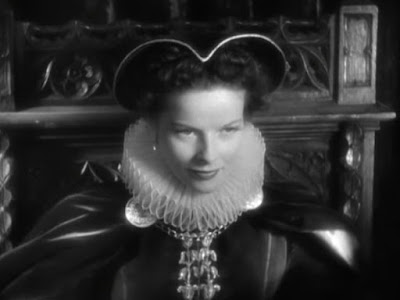 Topper (Norman Z. McLeod, 1937) Amazing that this one hasn't crossed my path before. The original author, Thorne Smith, was responsible for the source of I Married a Witch, which was an odd twee dip into the supernatural, dark cauldron division. Topper is considerably lighter—airier in spirit—much more screwball comedy-oriented, especially given its send-up of the privileged class.
Topper (Norman Z. McLeod, 1937) Amazing that this one hasn't crossed my path before. The original author, Thorne Smith, was responsible for the source of I Married a Witch, which was an odd twee dip into the supernatural, dark cauldron division. Topper is considerably lighter—airier in spirit—much more screwball comedy-oriented, especially given its send-up of the privileged class. George and Marion Kirby (Cary Grant, Constance Bennett) are idle-rich folk, who after a night and day of irresponsible living cannot escape an irresponsible death by taking a corner too fast in their roadster and crashing into a tree. They don't survive, although they do walk away from the accident, but merely as ghosts, fading in and out of reality—a sort of supernatural version of an extended drunk. "Well for once in our ... Well, for once, we're stuck," says George with clarity and a little regret. The couple decide then and there to do a good deed—taking on, as guardian angels, their banker Cosmo Topper (played by scene-stealer Roland Young), hen-pecked by his restrictive wife (Billie Burke). He lives a carefully-managed, tightly-scheduled life of quiet desperation, yearning to breathe free, or at least have a little fun now and again. The Kirbys provide him with the ghost of a chance and, although initially stumbling with the opportunity, he learns to embrace it, dealing with the disappearances, the levitation's and the other miracles that his ambassadors to a better life provide him.
It's from 1937, but the effects work is still pretty amazing—combinations of split-screens, double exposures, fade-in's, crash-edits, blue-screen and invisible wire-work. Even though the ghost-tricks have been done (and...done to Death), some of them are still startling (how DID they do that thing with the dogs?!). Clever and fun, and variations of the theme, so they don't over-use the same effect over and over again.
Nice cast, too. Hard to believe this was Grant's first foray into the light comedy stance that would be his signature style for the rest of his career (Hollywood hadn't discovered this yet?) and studio stalwarts like the frog-voiced Eugene Pallette, Alan Mowbray, and Arthur Lake (he'd become Dagwood in the "Blondie" movie series) making the most of their scenes. There's even a brief musical interlude with Hoagy Carmichael!
Inventively realized by Norman Z. McLeod, who (having directed the Marx Brothers) knew how to get out of the way of performers and tighten things up for the movies, Topper is delightful, smart of concept and word, ingenious in execution, and a genuine crowd-pleaser...in this life or the next.






























